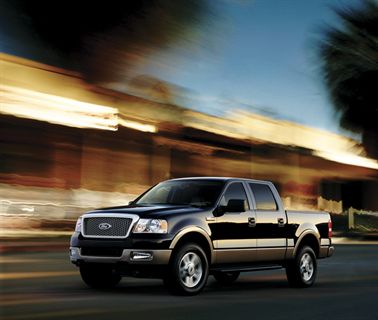
| Monday, January 23, 2012 | Archives | Advertise | Online Buyer's Guide | FLEETSolutions |
Ford, GM Deploy Fleets Differently
 Historically, fleet sales have been viewed as the soft underbelly of the new-car market, because prices are typically lower than retail. Ford is proud of its fleet sales to business; At GM, the strategy has been to de-emphasize it. Historically, fleet sales have been viewed as the soft underbelly of the new-car market, because prices are typically lower than retail. Ford is proud of its fleet sales to business; At GM, the strategy has been to de-emphasize it.Ford, though, which classified 31.7 percent of its 2011 new-vehicle sales as "fleet" compared with 25.5 percent at GM, says it's important to differentiate between types of fleet sales. "The reason our fleet is higher than what you would normally see is because of our commercial business," says Ford Sales Analyst Erich Merkle, noting that Ford's trucks enable a lead in commercial sales. "When you have F Series, Econolines, and Transit Connects, that is a good business. The commercial business for us is very profitable." Fleet sales have three sets of customers: commercial, government, and rental car companies. Generally, it is the sales to rental car companies that involve the lowest pricing. At Ford, Merkle says, fourteen percent of overall sales are to commercial customers, who range from very small businesses buying a handful of trucks to very large businesses, while twelve percent is to rental car companies and six percent is to government. At GM, spokesman James Cain says the strategy has been to de-emphasize fleet sales. A key reason, he says, is that "we want to support high resale values," an effort that suffers if commercial customers, particularly rental car companies, are consistently auctioning off relatively new used vehicles. Cadillac, for instance, decreased its fleet sales by thirty-three percent last year. In the past, Cain says, GM has sold a higher proportion of its production through fleet sales because it had excess capacity, overwhelming the retail demand. Before the U.S. auto industry's restructuring in the second half of the past decade, its flawed model involved building too many cars at too high a price and then selling them at too many dealers. "Fleet sales were a pressure relief valve for overcapacity and overproduction," Cain says. "Rental fleets in particular were used to sell vehicles you built that didn't have retail customers." In a report last year, R.L. Polk said that between January 2005 and September 2008, fleet sales accounted for thirty-one percent of the domestic automakers' sales volume. As the industry crisis deepened from December 2008 to January 2009, though, fleet sales sank quickly to twenty-one percent of volume as domestic carmakers sought to align production with demand. Since GM and Chrysler emerged from bankruptcy in mid-2009, they have continued to focus on reducing rental sales, Polk said. But they have not reduced rental car sales as much as Ford has, which Polk said was a sign of Ford's retail strength. Japanese and Korean automakers have historically had far lower participation in the commercial and rental markets than domestic competitors, Polk noted. Edmunds.com analyst Ivan Drury says Ford does have an edge in the commercial fleet business, but suggested that selling thirty-two percent of output to fleet customers "is a little higher than they would like" because it hurts residual values. Merkel, however, says that Ford "has given guidance that that's what we consider optimal mix, given the share of the market we have in the commercial vehicle space." |
 |
NAFA Fleet Management Association 125 Village Blvd., Suite 200 Princeton, NJ 08540 Telephone: 609.720.0882 Fax: 609.452.8004 |







